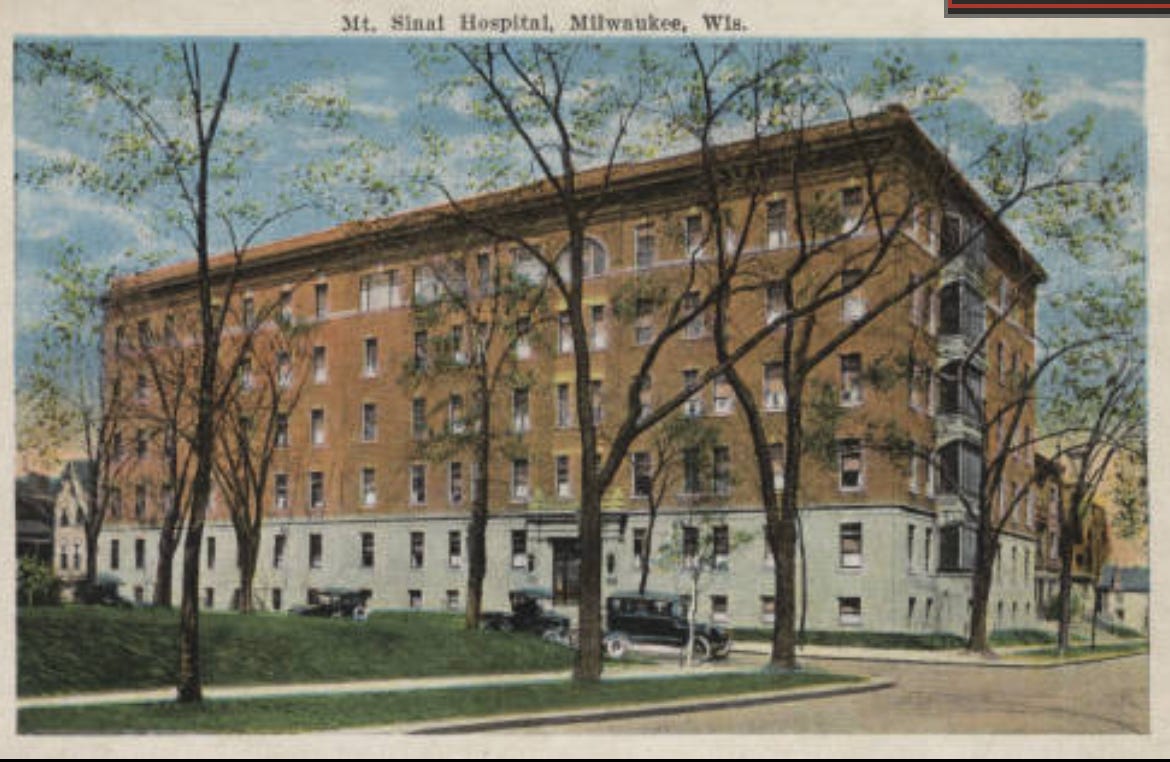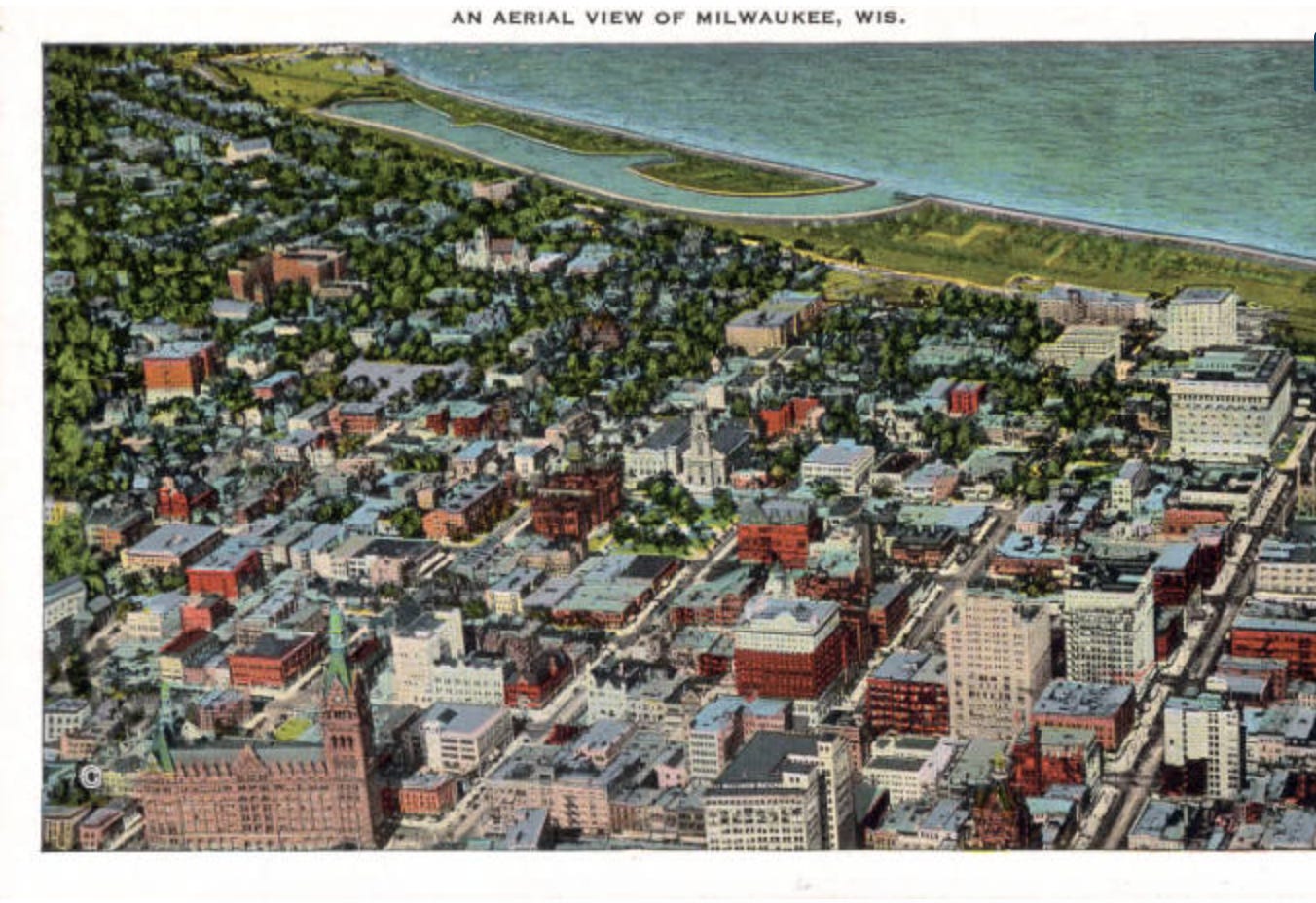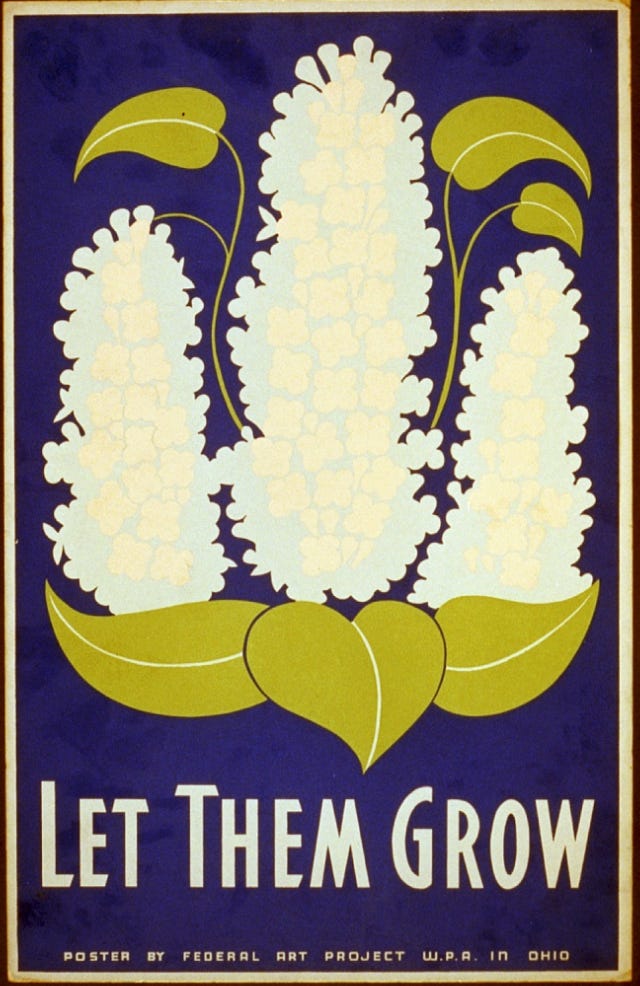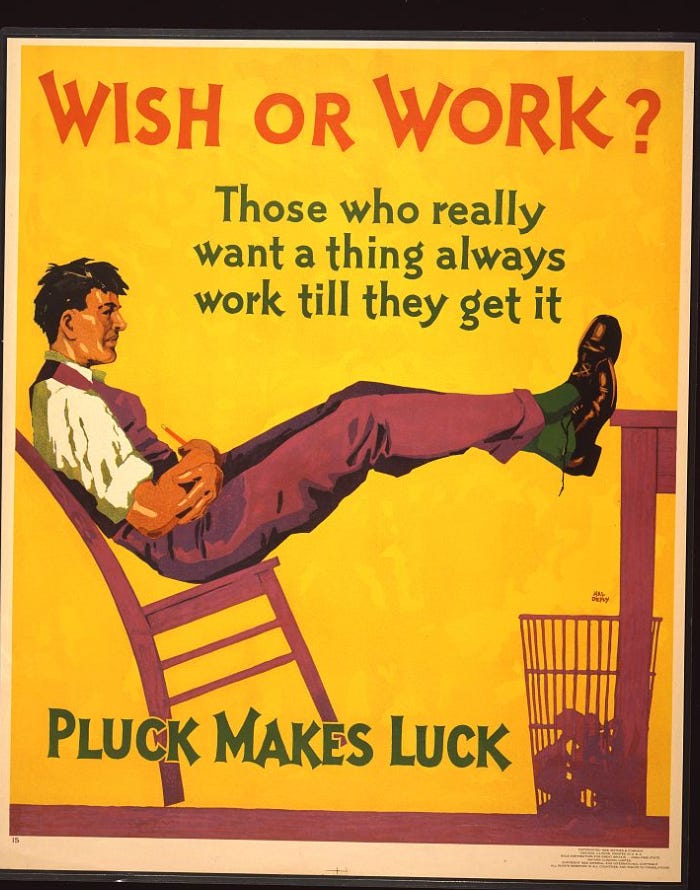When this is all said and done, we can have the society of our dreams or we can protect whiteness...
But we can't have both

Note: You’ll notice that I don’t directly address the fact that the state where I live is holding an illegitimate election today that is going to spread Covid-19 and cause untold amounts of harm. I am not linking to videos of one of only five polling sites open in my city, where the Black, Latinx and Hmong folks who make up the majority of our neighbors are standing in abhorrently long lines as we speak. I can’t look at those videos and not see the before scene in a horror movie. I’m writing this preface through tears.
If I did my job below, though, the connections between this individual moment of awfulness and the broader story I’m telling here will be clear. Make no doubt about it: My state is going to kill people today in order to protect existing structures of privilege and power. That’s an immense, unthinkable tragedy, but it also isn’t new.
Also: Please excuse typos. I’m solo with young kids during the day— writing late at night and then giving a cursory edits in the AM. Thanks for reading. I’m holding y’all in the light.
My wife is a family doctor. She is working very hard right now, though perhaps not in the way you’re picturing. It is bad here but our hospitals aren’t overflowing to the point of pure system collapse. We haven’t hit that moment where every doctor who can intubate and isn’t quarantined themselves will be called onto COVID service. She is tired and having to have difficult conversations with patients but she isn’t staffing a makeshift ICU on a convention center floor, staring at five patients who each need one remaining ventilator.
Yet. We aren’t there yet.
There are a lot of public appreciations for healthcare professionals going around right now. That’s nice. Appreciation is good, be it directed towards doctors or medical assistants or janitors or grocery clerks. My wife and her colleagues are human beings with hearts and feelings and as such they don’t mind the occasional kind sidewalk chalking or apartment complex singalong. Some forms of appreciation are more, um, helpful than others though. For instance, everybody who knows an actual healthcare professional right now can tell you that the last thing they currently desire is to spend her five minutes of free time a day on a Zoom with John Stamos or Bono, but what this absolutely bonkers tweet presupposes is, maybe they’re wrong?


Hamfisted or not, everybody’s trying to help. It’s legitimately touching.
And yet…
My wife, an extremely un-aggrieved person under normal circumstances, is angry and heartbroken right now. All the singalongs and salute-the-troops-style thanks for her service aren’t going to change that. And yes, as you’ve likely heard from many medical professionals by now, she’s angry about the various ways political-leaders-who-should-have-prepared-for-this instead spent the first quarter of the year walking around in circles, stepping on rakes.
But it’s not just that.
Here’s how my wife has spent many of her recent days [Note: I’m married to a woman who is extremely diligent with HIPPAA so I receive only extremely general summaries. You’ll get the point though]. She gets on the phone with patients whom she respects deeply and tells them that, test or no test, their symptoms present a clear danger to themselves and others and they need to stay home. In response, they reiterate to her tragedies that she already knew— their house isn’t safe, they’ll be fired from their low-wage service job if they don’t come in. Some have already lost their job and now don’t have health insurance. Some are very likely holed up with abusers. Some don’t have any food in the house and don’t have a good means of getting their kids to one of the free meal services the school district set up. They deserve so much better than this, but that’s not the kind of country we’ve built.
Our nation didn’t just start social distancing a month ago. It’s just that typically there are clearer patterns as to whom we embrace and whom we keep at six-feet-distance.

I’m writing this from our home in Milwaukee. You’ve likely heard that it’s the most segregated metro area in the country. That’s accurate, but oh jeez that’s such an obfuscatory, Cream of Wheat bowl of a phrase. Here’s what people are actually saying when they say that a place is segregated: They mean that it’s a city where lines are drawn in the middle of streets and if you live on one side your untimely death is a tragedy and if you live on the other side it’s barely noticed. You already knew that though. Your town may not get the “most segregated” title, but it has those lines. And you know what people look like on the “your death is a tragedy” side and what people look like on the “your death is basically an acceptable price to pay for the rest of us to live in what we are told is the greatest county in the world” side.
Our house is on one of the border-lines. My wife’s patients are almost all Black, Brown, Southeast Asian and Indigenous, almost all poor. They live to the west of us. They live in neighborhoods with wonderful assets— community leaders, caring parents, young people with big dreams. But they also live in neighborhoods where even in the best of times, people die who shouldn’t have to die.
This city doesn’t experience anything equitably, and so it isn’t experiencing this crisis equitably. The CDC sent researchers to town to study why so many more Black people are dying here than anybody else. As this incredible Propublica piece by Akilah Johnson and Talia Buford illustrates, though, we already knew the answers: When your country as a whole decides, implicitly and explicitly, that an entire community doesn’t matter, you and your neighbors learn to fend for yourselves. That means hustling for jobs that can’t “pivot”to Zoom. That means relying on tightly woven community bonds for childcare, transportation and other needs. That means trusting your own sources of information instead of a government or press that has frequently lied to and about you. We didn’t celebrate those stories of resilience and creativity in the salad days. What’s laid bare right now, though, is that these behaviors reflect highly of the communities who developed them but are unspeakably damning of the country that left them no other option. The irony is that this time around, the exact behaviors that Northwest Milwaukee developed to survive an unwelcoming country are the very things that now allow a virus to rampage through it.
My wife is angry right now because her job as a doctor is to keep people from dying but she works in neighborhoods where our country has ensured that it’s damn near impossible to stay alive. In some ways that’s more true than ever now. In other ways it isn’t.
I hope that you’re not reading this as a Milwaukee problem because you know full well that it’s true in your state right now as well. It’s true in New York, where, in spite of that city’s unwillingness to disaggregate Covid data by race, it’s clear that Black and Puerto Rican and Dominican and South and Southeast Asian neighborhoods on the city’s margins are being hit the hardest. It’s true in the Southwest, home of the great Navajo Nation, where people are dying because we determined long ago that it’s ok for residences within the boundaries of the United States to not have running water in 2020. It’s true everywhere in the country where undocumented immigrants are being directly denied care and Asian Americans can’t go outside without dodging slurs and threats.
Our nation didn’t just start social distancing a few months ago.

I have so many daydreams about what I’m going to do when this is all over. Some are more selfish and superficial than others. I want to hug my parents. I want to watch them play and laugh with my kids. I want to go out on an honest-to-God date with my wife. Hell, I want to see my wife for more than a few minutes before we fall asleep. I want to stop being such a paranoid weirdo in the grocery store. I want to drive into the Driftless and eat at like four different Culvers but not stop for the night until I hit a bar that I can tell has a few big TVs. I want to eat a plate of wings and drink a beer or two and watch an NBA game between two teams that don’t matter to me one bit. I want to zone out while the Wizards play the Nets and marvel at Rui Hachimura’s limitless potential and Spencer Dinwiddie’s goatee. I want the stranger next to me to ask me what brought me to Richland Center anyway.
Most of all, though, I daydream of the kind of country we could be when all this is said and done. I hope beyond hope that this collective moment of shared solidarity will trigger a drive to shed our tired obsession with individualism and replace it with a commitment to the common good. I take comfort in Rebecca Solnit’s A Paradise Built in Hell, her chronicle of the intense altruism that is so often spurred by disasters. I take inspiration from the stories of how famine and destitution and mass out-migration spurred the Nordic countries to build long-standing cultures of social solidarity that, while imperfect, still stand head and shoulders above anything we’ve seen anywhere else.
But then I remember how we got here.

[Note: For more on the line of thought I’m about to explore below, I highly recommend Eduardo Porter’s American Poison, which just came out and which I’m still working through myself, but which makes all the points I make fleetingly below more compellingly].
We are not a “rugged individualist” nation because of Protestantism or Yankee pluck or even capitalism alone. You simply don’t have the option of collectivism if your country’s founding and flourishing is dependent on the deaths of one large group of your continent-mates and the forced enslavement of a second group. Just as there is no true solidarity on an airplane when the flight attendant pulls the curtain to separate first class from everybody else, so too is it impossible for a country to embark on ideals like “the common good” if your first move as a country is to draw a restrictive curtain around one segment of your population, proclaiming that anybody on the outside doesn’t count.
We know this story, of course. It’s the one told so effectively in Ibram X. Kendi’s Stamped From the Beginning and Nell Irvin Painter’s The History of White People or Nikole Hannah-Jones’ entire 1619 Project. Acknowledging the role of structural racism in shaping Black, Brown and Indigenous communities has, in the past decade, become the well-accepted “right answer” in conscious professional managerial class circles. When I paint a picture of untimely deaths in North Milwaukee, we all know to furrow our brows and say that is all very sad and all very unjust. But even when we give lip service to the tenacity of racism in shaping our lives, we often ignore one of its most insidious tentacles: Throughout our history, our national addiction to white supremacy hasn’t just caused death and destruction in communities of color, it’s what’s consistently held all of us back from having the country we deserve.
I’ve been reading about the New Deal these days (particularly Ira Katznelson’s Fear Itself). It’s just more dream chasing on my part, of course, but of a different sort. More like Dream Deferred chasing. Oh goodness, we got so close to something beautiful. Brought to our knees by Depression, with a palatable fear that we, like our peers in Europe, we might slip in this moment of pain to an embrace of fascism, we chose a nobler path. Well, sort of.
Again, you likely already know that the New Deal was a mixed bill of goods (at best) for anybody who wasn’t white— both because of direct poison pills (like restrictions on who could qualify for social security) inserted by Dixiecrats as well as the slow burn of the FHA’s death-making redlining checkerboards. It’s wild, though, that we take for granted that history as being so natural. The thing is, the New Deal WAS an attempt to radically re-shape American values— a direct uppercut to the primacy of rugged individualism. It was a real bet that recovery could come not through propping up titans of industry but through investing in working men and women. The problem is, we only made a real bet on working people of a certain complexion. Many sacred cows were slayed during the Roosevelt years, which makes the one major one untouched all the more glaring.
In so many ways, we still live in the floodplain of that moment. The fact that we didn’t go further, that we didn’t seize one of our largest moments of common challenge to break down our oldest hierarchies, established that we would never truly do so in the future. Whereas the New Deal could have been the moment where white people were first told that they might have to sacrifice their place on the pedestal in return for a more flourishing society for all, instead it reaffirmed our country’s promise that we will never be asked to give up anything at all.
Now, of course, seizing that moment would have required more than simple executive action by Roosevelt, mere Great Man bravery against the Dixiecrats. It would have taken mass organizing and education in white communities so that our response could be less vitriolic and poisonous than would be reasonably predicted. That mass organizing of white America never happened (in spite of calls by so many Black Civil Rights and Black Power activists to do exactly that). And so, when Johnson attempted to correct some of the racial exclusion of the New Deal in the Great Society, large swaths of white America revoked their support for collective welfare programs of any kind, including ones that benefited them personally, because they no longer uniquely benefited them and only them.
For those of us who are white and who grew up on the other side of the Civil Rights movement and the Great Society, we would eventually be told that we should not be actively racist, that we shouldn’t harbor ill will towards other races. We were also told, though, that we had nothing to worry about, that our place in hierarchies, both concrete and abstract, will never be challenged.
And so we’ve passed on, from generation to generation, a world where those of us on the top of society are taught that our job is to protect that birth right. And so we do. For some of us, we protect it in our voting patterns and political proclivities (even when doing so kills or hurts us, as works like Arlee Russell Hoschild’s Strangers in Their Own Land or Jonathan Metzl’s Dying of Whiteness illustrate so painfully). For others, we protect it through the self-centeredness with which we decide where to live, how to operate our workplaces and where to send our kids to school. For all of us, we protect it by not organizing against it.

Imagine, for a moment, a version of our country that actually took care of everybody. A country with universal healthcare. A country where every street was safe, where no household was forced to drink from lead pipes, where every school respected the dignity of all of its pupils. Imagine a country with robust public transportation systems and accessible green space everywhere. Imagine a country without mass shootings. Imagine a country that wasn’t in this mess right now.
Depending on your underlying ideology, the country you just envisioned might have been socialist or social democratic. It might have been more market-based. Either way, you’ve got no pathway to get there if our political and social imagination remains limited by our unwillingness to organize white communities in a different way than we’re accustomed.
The urgent question, for those of us who are white and claim that they seek justice, is not whether or not we can master the language of critical race theory, not whether we can show how good we are at reflecting on privilege, but what kind of organizing we’re ready to do. Are we ready to listen to Black, Brown and Indigenous activists who are leading campaigns that, for their success, will require white people to give something up concretely for the common good? And are we then willing to organize our networks to do precisely that?
If you’re interested in learning more about what that organizing might look like, please reach out (just reply to this email or send me a direct message on social media). I rarely include such a personal call to action in my writing, but truth be told, this is and will be my life’s work. I’ve been building a nascent organizing and training network called The Barnraisers Project and though it’s small and new right now I think we have some useful tools.
I’m terrified right now that we’re, understandably, going to come out of this moment so focused on responding to the myriad immediate tragedies that will be laid bare in the wake of this virus that there will be little energy or support for longer term organizing. Goodness knows I want to help reduce harm right now, but I also want so desperately for my children and grandchildren to never have to live in a country that allows this, to never be so thoroughly hamstrung by an ethos that says you only have to take care of yourself.
I fear we are showering praise on doctors right now not merely because we are kind and empathetic people, but because of our obsession with one-off acts of gratitude for individual superheroes in our midst. The thing is, this week my wife is delivering babies. She’s doing so not because she’s a hero but because it’s a specific job she can uniquely do in the midst of staff shortages throughout her system. The vast majority of those babies, thank God, will survive this immediate pandemic. Unless we’re ready to organize towards a different world, however, they won’t survive the disconnected, bifurcated, unequal country that awaits them on the other side.
This week’s songs: “No Depression in Heaven” by The Carter Family and “Beef” by Mos Def.
Image credits here




I'm interested in learning more about what that organizing might look like. I'd like to hear more about what you're doing with the Barnraisers Project, and start thinking about deliberate next steps; now is definitely the time to act.
Love the "How to talk to white folks" doc. True that I didn't find anything in there that I'd never heard or considered before in one way or another, but you do a great job of framing the approach - what we need to do, how to think about the work, what makes it difficult, concrete suggestions for preparing ourselves to engage with people (whether "group 1" or "group 2"), how to think about what we are (and aren't) trying to accomplish with these conversations, concrete suggestions for following conversations up with joint action. I love it! Thank you.